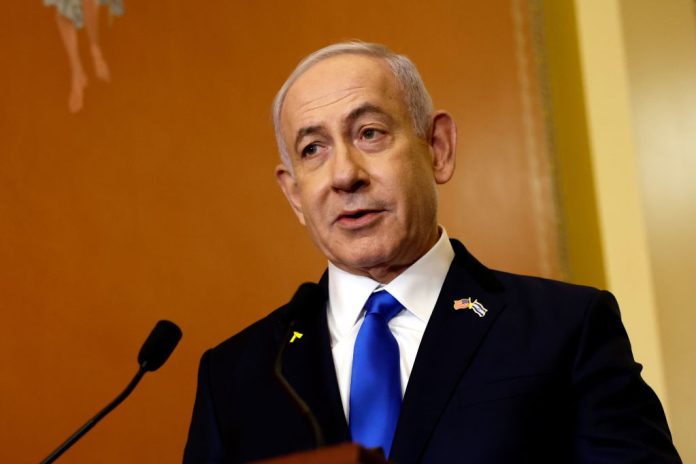Israeli Prime Minister Benjamin Netanyahu on Thursday reaffirmed his country’s commitment to neutralizing Iran’s nuclear and ballistic missile capabilities, as direct hostilities between the two West Asian powers entered their seventh day, raising fears of a broader regional war.
Speaking in a nationally televised address, Netanyahu condemned Iran’s latest missile strikes, including a direct hit on the Soroka Medical Center in Beersheba. The attack, which Israeli officials labeled a violation of international humanitarian law, has drawn widespread international condemnation.
Iran’s Islamic Revolutionary Guard Corps (IRGC) claimed the hospital was not the intended target, asserting that the strike aimed at nearby military infrastructure. However, the missile impact on the medical facility has intensified scrutiny over Iran’s targeting methods amid escalating violence.
In an extraordinary move, Israeli Defense Minister Israel Katz announced that the elimination of Iran’s Supreme Leader, Ayatollah Ali Khamenei, is now considered a core objective of Israel’s war strategy — a dramatic shift from previous policies centered largely on containing Iran through proxy conflicts.
Israeli military officials report that Iran has begun deploying advanced multi-warhead missiles capable of evading interception by splitting mid-air into multiple projectiles. These developments pose a significant challenge to Israel’s missile defense systems, which have been stretched thin during sustained barrages.
In response to Israeli airstrikes on command centers and military bases, Iran has reportedly repositioned several of its missile units from western provinces to central regions of the country. Intelligence assessments suggest the move is defensive in nature, and has temporarily reduced the frequency and scale of Iranian missile attacks on Israeli territory.
Meanwhile, former U.S. President Donald Trump has maintained a position of strategic ambiguity regarding potential American involvement. Speaking to reporters, Trump stated he had not yet decided whether the United States would support Israel militarily in its campaign against Iran’s nuclear infrastructure.
Iranian Supreme Leader Ayatollah Khamenei responded defiantly to suggestions of “unconditional surrender,” warning that any American military intervention would result in “severe consequences” for the United States.
The United Nations has voiced deep concern over the rising civilian toll in the conflict. A UN spokesperson condemned the targeting of non-combatants and called on all parties to uphold international law, urging maximum restraint to prevent further escalation.
In a coordinated diplomatic response, Indonesia and 23 other Muslim-majority nations — including Saudi Arabia, Türkiye, Egypt, and Pakistan — issued a joint statement under the banner of the Organization of Islamic Cooperation (OIC). The declaration condemned Israel’s attacks on Iranian territory and called for an immediate ceasefire, warning that continued hostilities could spiral into a full-scale regional war with catastrophic implications for global peace and stability.
The OIC statement emphasized the urgent need for diplomacy, the protection of civilians, and adherence to international humanitarian law.








































